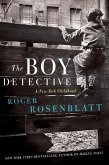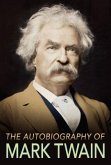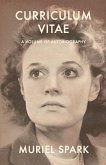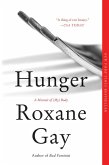A classic of twentieth-century American autobiography now back in print with previously unpublished material from the author's archive
First published in 1978, Mary Oppen's seminal Meaning a Life has been largely unavailable for decades. Written in her sixties, her first and only prose book recounts, with honesty, depth, and conviction, her fiercely independent lifea twentieth-century American romance, as Yang describes it in the new introduction, of consciousness on the open road; a book of travel where the autobiographer is not the usual singular self at the center of the story but the union of two individuals.
Oppen tells the story of growing up with three brothers in the frontier towns of Kalispell, Montana, and Grants Pass, Oregon, determined to escape the trap of a meaningless life with birth and death in a biological repetition. That escape happens in the fall of 1926, when she meets another student in her college poetry class, George Oppen. She is expelled for breaking curfew, and from then on the two face the world intertwined: living a life of conversation, hitchhiking across the US, sailing from the Great Lakes to New York City, meeting fellow poets and artists, starting a small press with Zukofsky and Pound, traveling by horse and cart through France, and fighting fascism through the Great Depression. Mary Oppen writes movingly of both her inner life and external events, of the inconsolable pain of suffering multiple stillbirths, of her husband fighting on the front lines during WWII while she struggled to care for their baby daughter, of fleeing to Mexico to avoid persecution for their political activities. This expanded edition includes a new section of prose and poetry that deepens Oppen's radiantly incisive memoir with further memories, travels, and reflections.
First published in 1978, Mary Oppen's seminal Meaning a Life has been largely unavailable for decades. Written in her sixties, her first and only prose book recounts, with honesty, depth, and conviction, her fiercely independent lifea twentieth-century American romance, as Yang describes it in the new introduction, of consciousness on the open road; a book of travel where the autobiographer is not the usual singular self at the center of the story but the union of two individuals.
Oppen tells the story of growing up with three brothers in the frontier towns of Kalispell, Montana, and Grants Pass, Oregon, determined to escape the trap of a meaningless life with birth and death in a biological repetition. That escape happens in the fall of 1926, when she meets another student in her college poetry class, George Oppen. She is expelled for breaking curfew, and from then on the two face the world intertwined: living a life of conversation, hitchhiking across the US, sailing from the Great Lakes to New York City, meeting fellow poets and artists, starting a small press with Zukofsky and Pound, traveling by horse and cart through France, and fighting fascism through the Great Depression. Mary Oppen writes movingly of both her inner life and external events, of the inconsolable pain of suffering multiple stillbirths, of her husband fighting on the front lines during WWII while she struggled to care for their baby daughter, of fleeing to Mexico to avoid persecution for their political activities. This expanded edition includes a new section of prose and poetry that deepens Oppen's radiantly incisive memoir with further memories, travels, and reflections.
Dieser Download kann aus rechtlichen Gründen nur mit Rechnungsadresse in A, D ausgeliefert werden.









